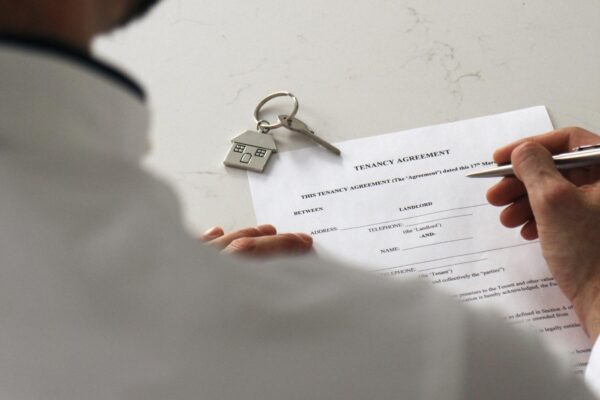Many landlords use their own tenancy agreements: sometimes using the same old agreement over and over again for years or even decades!
But the law around renting evolves rapidly and your trusty old contract is probably full of errors.
From EPCs, to right to rent, renting is going through a period of change. This means landlords are at risk. Relying on a document that could be out of date could derail your entire tenancy, with very costly consequences!
Here are the three most common problems caused by poorly drafted tenancy agreements… and how to avoid them!
1) Impractical Clauses
Landlords want their tenants to look after the property, so it’s tempting to include clauses that require tenants to do specific chores throughout the tenancy, or that forbid certain activities.
For example, some landlords include clauses that require tenants to hoover regularly, take their shoes off indoors, or follow a particular cleaning schedule for household appliances.
Unfortunately for micro-managing landlords, all of these terms are simply impossible to enforce in practice. The property is the tenant’s home. And even though landlords can expect tenants to act in a ‘tenant-like manner’, so too can tenants expect their ‘quiet enjoyment’ of the property.
Is the landlord really going to check the tenant’s cleaning and hoovering activity? This would be very difficult without incurring significant expense for the landlord or breaching the tenant’s right to quiet enjoyment.
If the clause is never going to be checked or enforced, you should consider whether it is worth including it in the contract at all.
2) Legally Unenforceable Terms
Worse than being impracticable, some clauses that are popular with DIY landlords are legally worthless, with no court expected to uphold their terms.
For example, it is common for landlords to state that tenants must pay for professional cleaning at the end of a tenancy. However, it is an established principle that landlords can never expect ‘betterment’: that is, the tenant can never be expected to return the property in a better (in this case cleaner) condition than would reasonably be expected given the condition at the start of the tenancy and the length of the tenancy.
So while a landlord can and should require that the property be left in as clean a condition as at the start of the tenancy, a clause that required tenants to pay for professional cleaning risks being unenforceable unless it was very carefully worded.
This is because a tenant is obliged simply to ensure the property is as clean at the end of the tenancy as it was at the start. A professional cleaning clause attempts to add an extra obligation to benefit the landlord.
Similarly, any contract clause that tried to make the tenant liable for things that are legally the landlord’s responsibility (such as obtaining a gas safety certificate or doing maintenance on the property’s structure) would be unreasonable attempts to override the tenant’s legal rights, and therefore unenforceable.
3) Unclear Wording
If wording is too complicated for a prospective tenant to be reasonably expected to understand, it is likely to be unenforceable.
Landlords with no contract-drafting experience may feel like language has to be overly formal, even to the point of incomprehensibility. Any such clauses will be unenforceable.
Here’s a classic example of needlessly confusing language:
Severability – The clauses of these Conditions and each sub-clause thereof are several and if any part of any clause or sub-clause shall be void, invalid or unenforceable then the remainder of such clauses or sub- clauses shall nevertheless be valid and enforceable.
At the other end of the spectrum, it is crucial for contracts to be specific enough about what a tenant needs to do.
For example, stating that rent is ‘payable monthly’ may seem clear, but what if the contract does not specify that rent must be paid in advance (rather than in arrears), or the date by which payment is required? Confusion on these points could lead to difficulties at the end of the tenancy, and therefore potentially to financial loss for the landlord.
How to Draw up a Perfect Tenancy Agreement
OpenRent will create your whole tenancy, including the contract for just £69. That includes:
- access to referencing
- collecting the signatures
- registering the deposit
- providing the AST
- collecting the rent and deposit




Start the discussion at community.openrent.co.uk